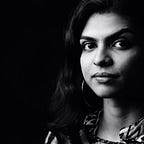Is There Anything You Do That Someone or Something Hasn’t Had to Allow?
If there’s one thing that has been recurring in our news and lives since this global pandemic began — apart from death tolls and election polls — it’s the un-ignorable presence of regulations. Lockdowns and travel bans and curfews and permits and you name it, we’ve had it. And for the most part we’ve accepted that what we consider our personal freedoms might be worth sacrificing for the greater good so we can get out on the better side of this situation and ‘return to how things were’.
But if we’re being honest with ourselves, we’ve been dealing with regulations and permissions long before this crisis and every crisis before. They were just — and still are — so deeply ingrained into our daily lives that we don’t notice them.
We think we are free in our own spaces but who is allowed to own space? Or even rent space? Because if the context of that freedom is controlled, is it freedom? Who decides who gets to live where and according to whose rules? And what about houses themselves? Houses that need permits to be built on lands that need to be owned so they can always be bought or sold.
Ownership is a vehicle we designed that drives control. Without it, I think most of the structures and systems we’ve built our modern lives around would fall apart. Animals may have territories and rivers may run along certain courses but each is a negotiation with the environment and everything in it through a live interaction. We deal instead in transactions. And through these transactions we have chains and webs of possession where countries own lands and people, who in turn own other people (through jobs or marriages), and somehow once you step one foot into the kingdom of ownership, everything in its rule becomes more available to you. You name it — for example, in India, if you are married you’re more likely to be allowed to rent or own a house; if you have a job it’s easier to get a loan which will allow you to have the means to own a house; and if you own a house or have a job it helps you get a document like a passport or visa that allows you to travel because it underwrites the guarantee that you will return to the land you own (or that owns you?).
So I asked myself this question — is there anything you do that someone, or something, hasn’t had to allow — and I came up blank. Because the truth is that even if we lived in a world where we didn’t have rules and could actually be responsible for ourselves; where we didn’t need some person, document or law to authorise and legitimise our identity, the place we live, or what we do, our life would still be only if it was allowed by the things and people around us. But just not in the same way. Because there is more than one meaning for the word allow.
According to the Oxford Dictionary — allow (əˈlaʊ) | verb is defined as — 1. to let (someone) have or do something, and 2. give the necessary time or opportunity for.
I think the first definition has to do with permission and the second is to make possible. And I see a difference between the two, because permission doesn’t grant us what is possible. Instead it limits what is actually possible and offers this limitation to us as a freedom. And this kind of allowing, that has to do with our laws and regulations and ownership, is something we have constructed and doesn’t have anything to do with a certain balance in the world.
The second kind — that makes possible or gives opportunity for — has more to do with our inherent interconnectedness with everything around us. If we are, it’s because our environment allows us to be. It makes us who we are. And I think we have forgotten this interrelation which gives us life and instead accepted permissions as part of life.
But if there is one thing both kinds of allowing have in common, it’s that if we become aware of them perhaps it could change the way we live and what we give importance to. Like knowing that if I live in a house it’s because permanent structures are part of a system that values being rooted to one place over being able to move around freely like our nomadic ancestors. Or if I am able to express myself freely with a group of people and say what I think and emote what I feel, it’s because they allow me to be that person without censoring myself. Or simply being aware of the fact that if we are alive at this specific time and space it’s because the Earth offers the conditions that allow life…
If we are really consciously aware of both these kinds of allowing, we have the opportunity to reorient what we value, what has importance, and what determines our choices. Perhaps we can also start to define ourselves less by what different permissions tell us we get to be, and instead more through our relationships and interactions with our environments that can show us who we are.
